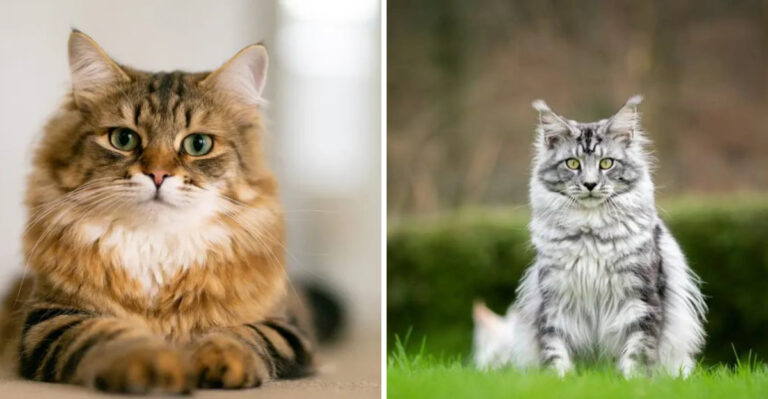15 Tips For Finding The Perfect Cat Sitter Your Cat Will Adore

Leaving your feline friend behind while you’re away can be stressful for both of you. Finding a cat sitter who clicks with your kitty isn’t just convenient – it’s essential for your peace of mind and your cat’s happiness.
The right sitter can make your absence barely noticeable to your furry companion, while the wrong match might leave everyone feeling frazzled.
These practical tips will help you find a cat care superhero who’ll have your cat purring with delight even when you’re miles away.
1. Meet Before You Commit
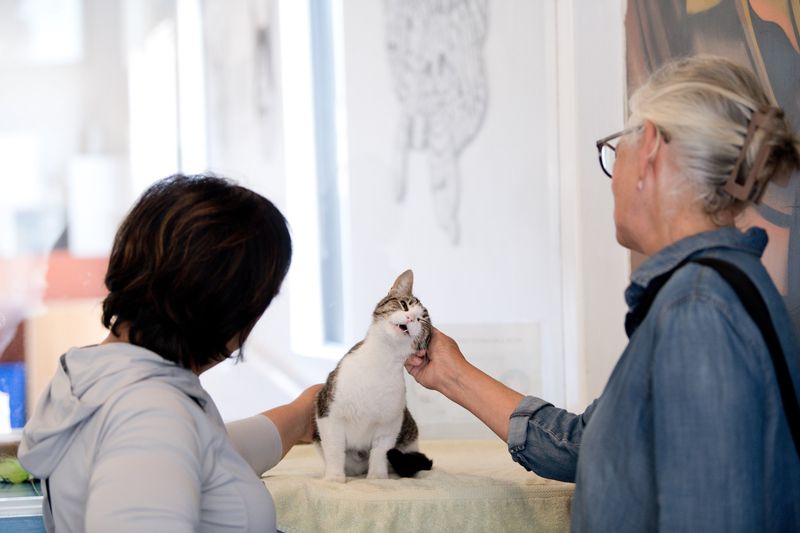
Arrange a face-to-face meeting with potential sitters at your home. This gives your cat a chance to sniff them out – literally! Cats are excellent judges of character and will often show clear signals about how they feel.
Watch how the sitter interacts with your cat. Do they get down to your cat’s level? Do they respect boundaries if your cat seems shy? A good sitter won’t force interaction but will let your cat approach in their own time.
Pay attention to your cat’s body language during this introduction. Relaxed ears, slow blinking, or approaching the sitter are all positive signs that this might be the beginning of a beautiful friendship.
2. Check For Feline Experience
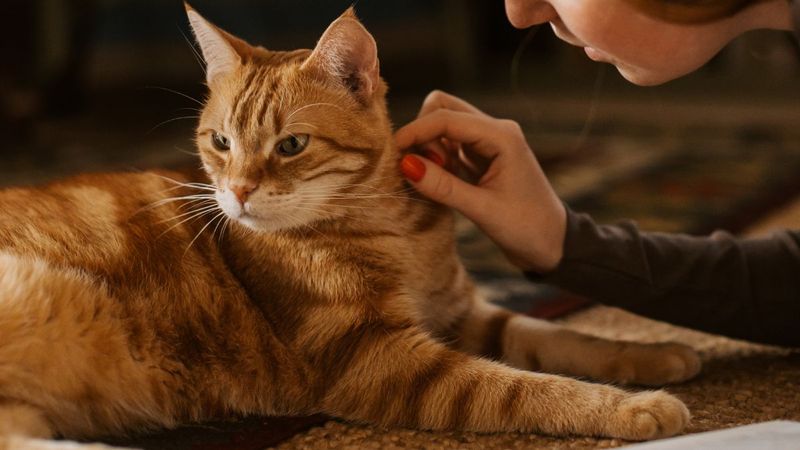
Not all pet sitters are created equal when it comes to cat care. Someone might be great with dogs but clueless about feline body language and needs. Ask specifically about their experience with cats and how many feline clients they currently have.
Experienced cat sitters understand that cats aren’t just small dogs. They know cats need different handling, have unique behaviors, and require specific types of attention. They’ll recognize the difference between a playful swat and an aggressive one.
Quiz them on basic cat knowledge: How would they introduce themselves to a shy cat? What would they do if your cat refused to eat?
3. Verify References Thoroughly
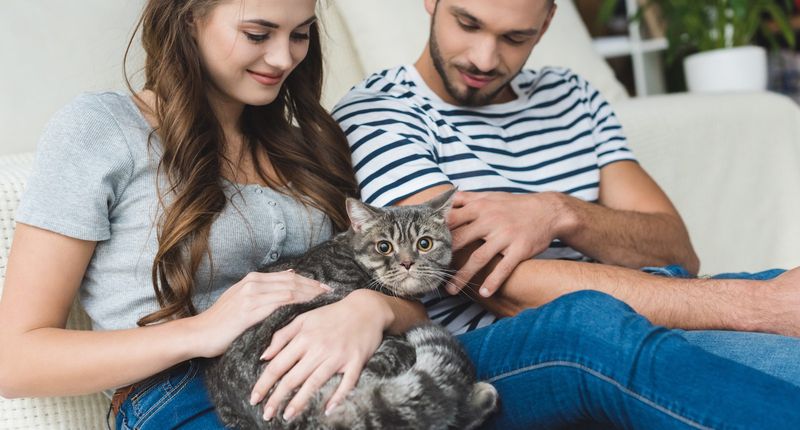
Never skip checking references when hiring a cat sitter. Ask for at least three previous clients who can speak to the sitter’s reliability and cat-handling skills. When you contact these references, go beyond basic questions.
Ask specific things like: “How did your cat behave after the sitter left? Did they seem stressed or content?” and “Did the sitter send updates without being prompted?” These detailed questions reveal much more than generic inquiries about satisfaction.
Bonus points if the sitter has repeat clients with cats similar to yours in temperament or with similar care needs. Long-term clients are often the best indicator of a trustworthy, skilled cat sitter.
4. Look For Medical Know-How
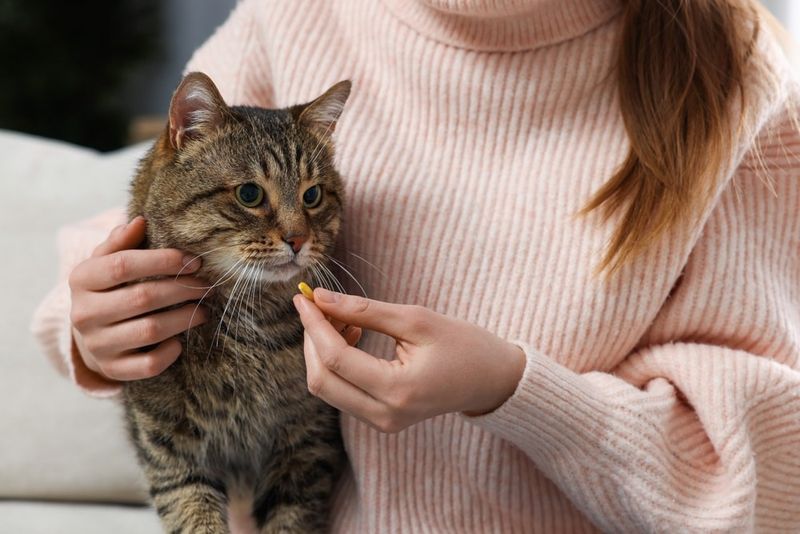
Cats are masters at hiding illness, so your sitter needs a sharp eye for subtle changes. Ask if they’ve handled medication administration or have experience with special needs cats. A great sitter won’t balk at giving pills or monitoring chronic conditions.
Some professional sitters have pet first aid certification – a major plus! They’ll know what constitutes a genuine emergency versus a wait-and-see situation. This knowledge can save you unnecessary vet bills or, conversely, catch serious problems early.
Quiz them: “What signs would make you take my cat to the vet immediately?” Their answer should include symptoms like labored breathing, inability to urinate, or significant lethargy.
5. Seek Flexibility With Scheduling
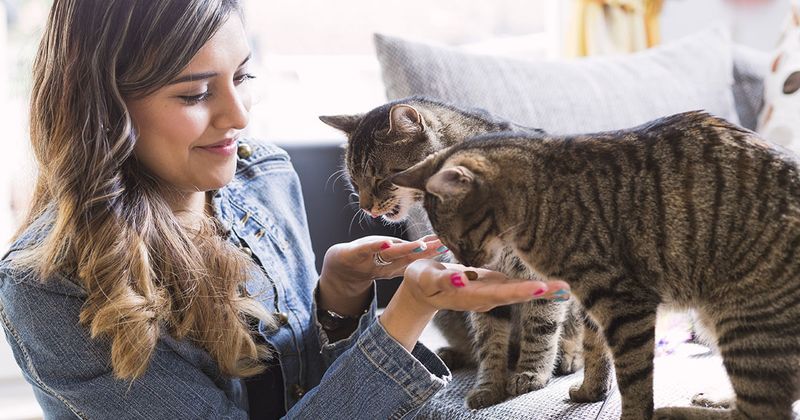
Cats thrive on routine, so finding a sitter who can visit at consistent times makes a huge difference. The ideal cat sitter understands this and works to maintain your cat’s established schedule for feeding, play, and cuddles.
Ask about their availability during holidays and busy seasons. Many sitters get booked months in advance for popular travel times. A dependable sitter will be honest about their capacity and won’t overbook themselves to the point where your cat gets shortchanged on attention.
Emergency flexibility matters too. Can they stay longer if your return is delayed? Could they increase visit frequency if your cat seems stressed? These contingency plans provide valuable peace of mind.
6. Request Daily Updates
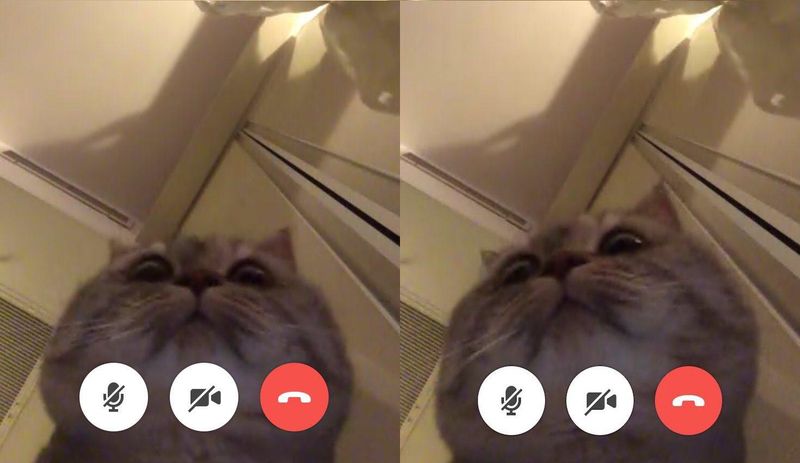
A picture is worth a thousand words – especially when you’re missing your furry friend! Professional cat sitters should provide daily updates with photos or videos without being asked. These visual check-ins reassure you that your cat is happy and well-cared for.
Beyond cute snapshots, updates should include practical information: Did your cat eat well? Use the litter box normally? Play with toys? These details help you gauge your cat’s stress level and overall wellbeing during your absence.
Clear communication expectations upfront. Would you prefer texts, emails, or updates through a pet sitting app? How often would you like to hear from them? The right sitter will accommodate your preferred communication style.
7. Observe Their Cat Communication Style
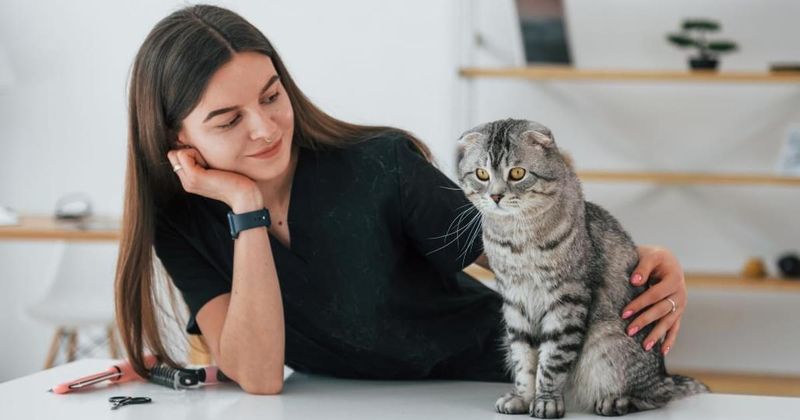
The way a potential sitter interacts with your cat speaks volumes. Do they use a gentle, soothing voice? Do they move slowly and deliberately around your cat? These subtle behaviors show respect for feline communication preferences.
Cat-savvy sitters understand the slow blink, the importance of letting cats initiate contact, and how to read tail positions. They won’t stare directly at a nervous cat or force physical interaction. Instead, they’ll create an environment where your cat feels safe enough to approach.
Ask them to demonstrate how they’d greet your cat if they arrived for a visit. Their approach – from entering the home to making first contact – reveals their understanding of cat psychology and comfort levels.
8. Evaluate Home Security Practices
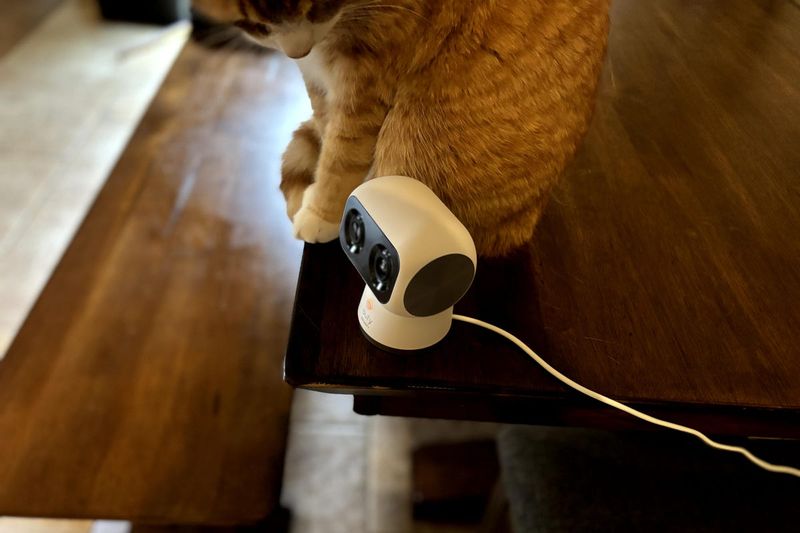
Your cat sitter will have access to your home, so security matters tremendously. Professional sitters have established protocols for key handling, alarm codes, and home security. They should never leave keys in obvious places or share access information with others.
Ask about their system for keeping track of clients’ keys and security information. Many pros use coded lockboxes or secure key management systems. They should be willing to sign a service agreement that outlines confidentiality and security expectations.
A trustworthy sitter will also notice and report anything amiss in your home – from water leaks to open windows. This extra set of eyes provides additional home security while you’re away.
9. Consider Insurance And Bonding
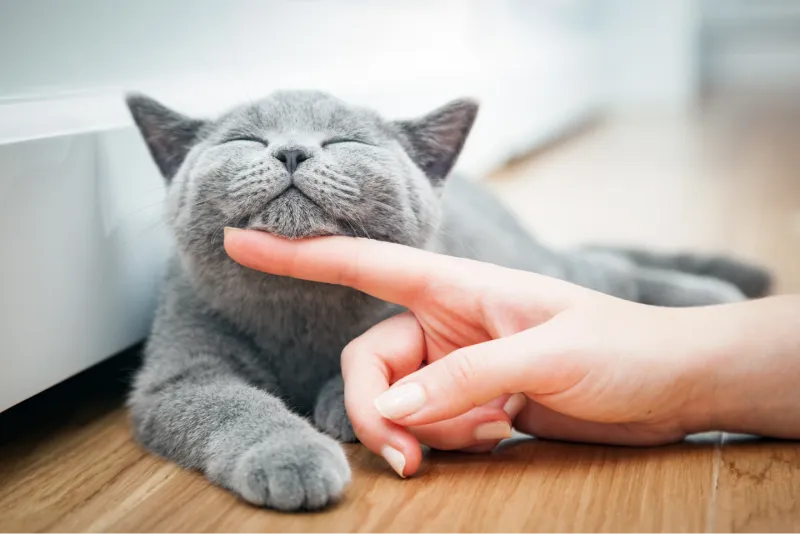
Professional cat sitters who are insured and bonded show they’re serious about their business. Insurance covers accidents or damages that might occur during their care, while bonding provides protection against theft or dishonesty. These credentials separate casual sitters from true professionals.
Ask to see proof of their coverage and what specifically it includes. Quality insurance should cover liability for injuries to your pet, damage to your home, and lost keys. Some even cover veterinary costs if your cat needs emergency care while in their charge.
Remember that hiring an insured sitter might cost more, but the peace of mind is priceless. It demonstrates the sitter’s commitment to professionalism and responsible pet care.
10. Ask About Additional Services
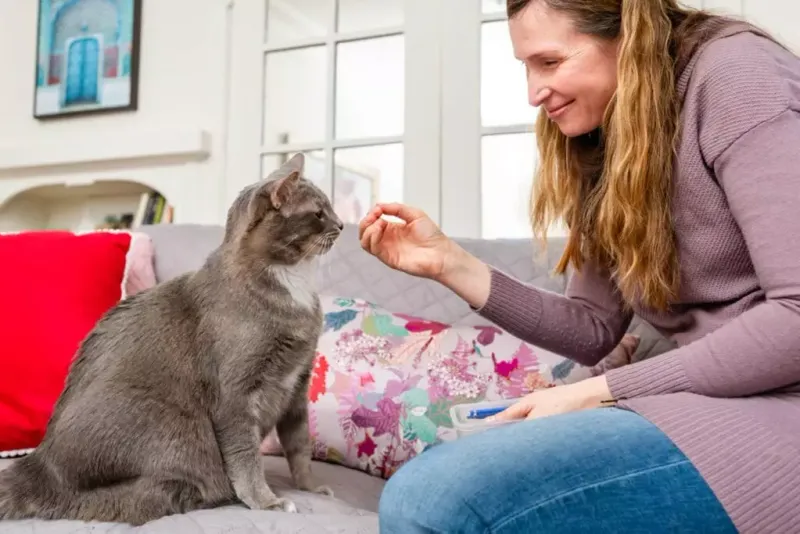
The best cat sitters offer more than just feeding and litter box cleaning. They understand that environmental enrichment keeps cats mentally and physically healthy. Ask what extra services they provide beyond the basics.
Great sitters might offer interactive playtime with wand toys, brushing for long-haired cats, or even simple training reinforcement. Some provide home care services like plant watering, mail collection, or rotating lights to make your home look occupied – adding value beyond pet care.
For senior cats or those with special needs, ask if they’re comfortable with additional care like subcutaneous fluids, special feeding routines, or mobility assistance. These specialized skills can make all the difference for cats requiring extra attention.
11. Trust Your Cat’s Reaction
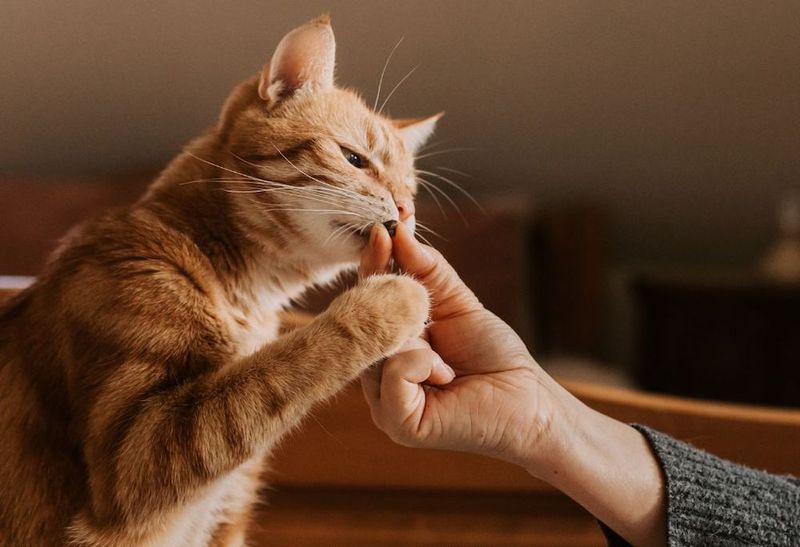
Cats have finely-tuned instincts about people. If your normally friendly cat hides or seems stressed during a meet-and-greet with a potential sitter, take note! This doesn’t necessarily mean the sitter is bad, but it could indicate a personality mismatch.
Some cats need time to warm up to strangers. A good sitter understands this and won’t take it personally if your cat isn’t immediately affectionate. They’ll respect boundaries while gently encouraging trust to develop naturally over subsequent visits.
Watch for subtle positive signs too – your cat showing curiosity, accepting treats from the sitter, or returning to the room after initially hiding. These behaviors suggest your cat might feel comfortable with this person given a little time.
12. Prepare Detailed Written Instructions
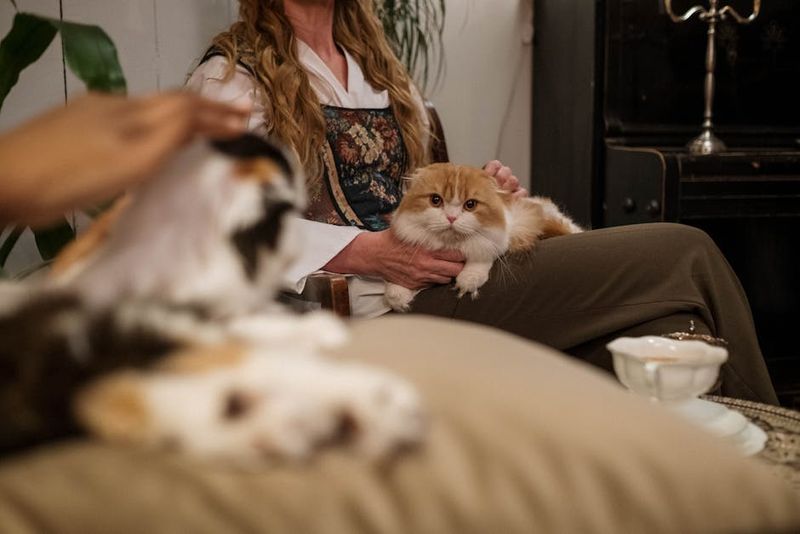
Even the most experienced cat sitter needs specific information about your unique feline. Create a comprehensive care guide including feeding amounts, medication schedules, hiding spots, and behavioral quirks.
The best sitters will ask questions about these instructions to ensure they understand completely.
Include your cat’s body language cues: Does your cat’s swishing tail mean play or irritation? How do they show they want attention? These personalized insights help the sitter interpret your cat’s needs correctly.
Don’t forget emergency contacts: your vet, a backup vet, a trusted neighbor, and where you can be reached. A prepared sitter will appreciate this thoroughness, and it shows they care about following your preferences exactly.
13. Compare Pricing Structures
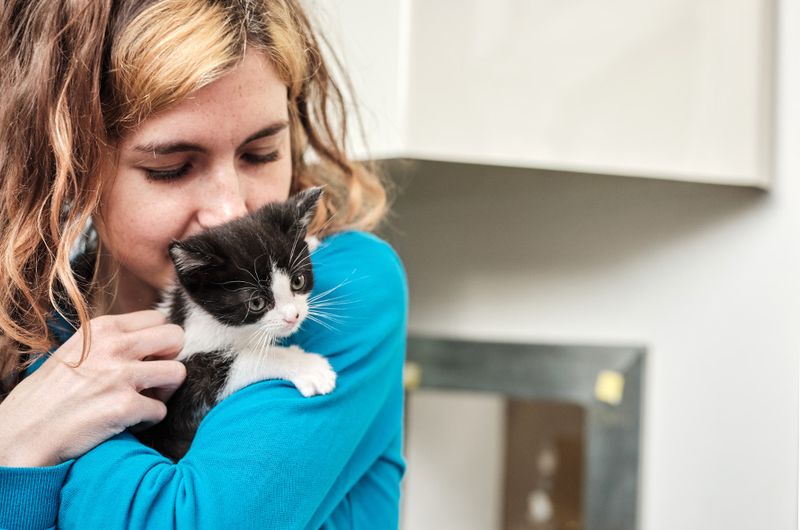
Cat sitting rates vary widely based on location, services, and experience level. Don’t automatically choose the cheapest option – in pet care, you often get what you pay for. Professional sitters charge professional rates that reflect their training, insurance, and reliability.
Ask for a clear breakdown of their fee structure. Does the price include playtime and cuddles, or just basic feeding and litter box cleaning? Are there extra charges for medication administration or additional visits? Understanding the complete cost helps avoid surprises.
Many quality sitters offer package deals for regular clients or longer bookings. Establishing a relationship with a slightly pricier but excellent sitter can be more valuable than saving a few dollars with someone less experienced or committed.
14. Schedule A Trial Run
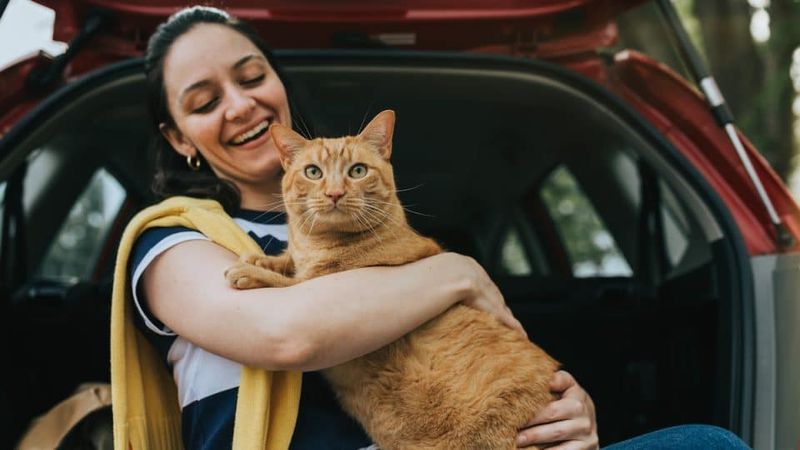
Before committing to a lengthy absence, arrange a short trial run with your chosen sitter. A weekend getaway provides the perfect opportunity to test the relationship between your cat and their new caretaker without the pressure of an extended trip.
Ask the sitter to follow the exact routine they would during your longer absence. This dress rehearsal reveals how well they follow instructions and how your cat responds to their care. Upon your return, look for signs that your cat was well-cared for: clean litter, appropriate food levels, and a relaxed feline.
A trial also tests the sitter’s reliability and communication style. Did they arrive when promised? Send updates as agreed? Address any concerns that arise during this test period before booking for your main trip.
15. Look For Genuine Cat Affection
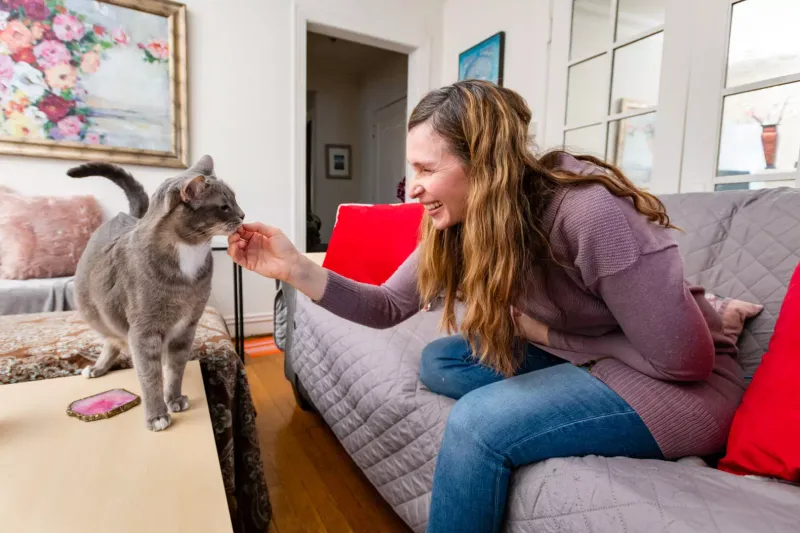
There’s a world of difference between someone who tolerates cats and someone who truly loves them. During interviews, listen for how potential sitters talk about cats – do their eyes light up? Do they share stories about feline clients they’ve bonded with? This genuine enthusiasm can’t be faked.
Cat-loving sitters will ask specific questions about your cat’s personality, preferences, and quirks. They’ll want to know favorite toys, preferred petting spots, and individual habits. These questions reveal their desire to connect with your cat as an individual, not just complete a job.
Many dedicated cat sitters have feline companions of their own. Ask about their personal cats, past or present – their faces will tell you everything about their authentic connection to the feline world.




